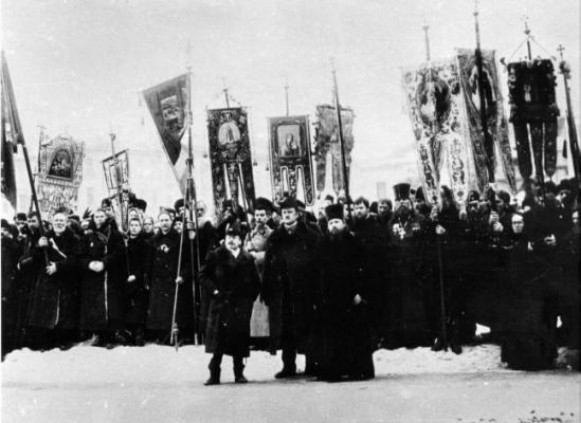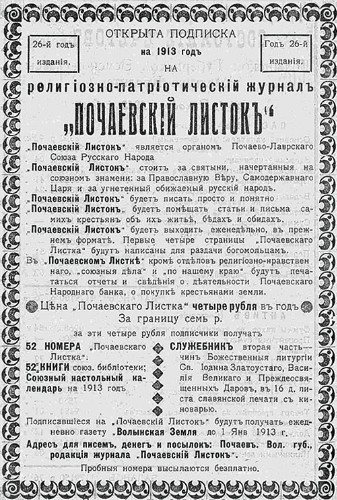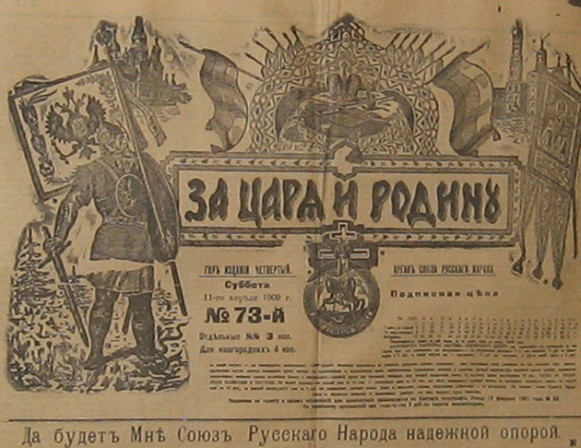Union of the Russian People
Union of the Russian People [ Russian: Союз русского народа; Soiuz russkago naroda]. The largest and most extremist of the Russian Black Hundreds organizations, founded in Saint Petersburg in October 1905. It was led by A. Dubrovin and, from 1910, N. Markov. It fanatically defended tsarist autocracy, an indivisible Russian Empire, and Orthodoxy, and its members terrorized and murdered ‘traitors’ and enemies: Jews, liberals, socialists, revolutionaries, and participants in the non-Russian national movements. Enjoying the moral and financial support of Tsar Nicholas II, the government, the police, and even Russian Orthodox bishops and members of the Holy Synod, the union founded 900 branches throughout the Russian Empire and published a daily, Russkoe znamia, and other reactionary propaganda. In Ukraine, where it was particularly strong in the cities of Odesa, Kyiv, and Chernihiv and at the Pochaiv Monastery in Volhynia gubernia, it disseminated militantly anti-Semitic and anti-Ukrainian views through periodicals such as its own Pochaevskii listok and the right-wing Kyiv daily newspaper Kievlianin. . During the Revolution of 1905 the union’s ‘combat bands,’ consisting mostly of lumpen and criminal elements, instigated many vicious anti-Semitic pogroms, particularly in Odesa, Yalta, and Chernihiv gubernia. In the 1907–12 Third Russian State Duma at least 32 deputies were union members. From 1908 on the union increasingly lost popular support, and several factions (eg, the Union of the Archangel Michael) broke away from it. In 1913 the union inspired the infamous anti-Semitic Beilis affair in Kyiv. It was banned after the February Revolution of 1917.
Roman Senkus
[This article originally appeared in the Encyclopedia of Ukraine, vol. 5 (1993).]


